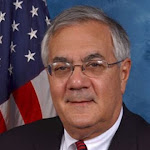Iran's attempts to put down the opposition may lead to Khamenei's eventual downfall
If anyone had asked what the state of Iran would be in the early 2010's in the 90's or even during Bush's first term, none would've guessed it would be anywhere close to the possibility of revolution.
Heck, if you had asked myself and other international relations analysts last year shortly after the contended Iranian election about where Iran would be today, we would also have been skeptical that any sort of regime toppling movement was at hand. I know many of us hoped this to be true at that particular time, but the fierceness that the Revolutionary Guard confronted them with and the dwindling support for opposition at the time really made it hard to predict any significant shift.
However, it seems with the continued protests, and specifically with the protests of last week which were the deadliest since the post election protests, it seems that not only has the opposition been bestowed new life, the opposition has begun to be injected with the type of courage and self determination that is a requirement for any successful revolution.
Iran has become a shining example of the idea that revolution comes from within, and not from without. They've gone through one major regime change in the last 30 years through grassroots revolution. It seems there's still much much life left in that same spirit that freed them from the Shah in 1980.
What's different between now and the first protests a few months back is the degree to which the Khamenei regime is taking on the opposition.
We've seen executions, harassment of opposition figures and known associates, and other such actions that perhaps seem necessary to the Supreme Leader, but in hindsight is becoming major fuel for the opposition.
The two biggest weapons in the Supreme Leaders arsenal are becoming the strongest incentives for Mousavi supporters to protest and garner support. Mousavi has yet to be arrested, but the moment he does become arrested and the moment arrests spread beyond just those protesting could be a loud cry for open rebellion from supporters.
We can know for sure that Khamenei and Ahmadinejad aren't stupid. They know they need to walk a fine line with how they deal with this threat to their power, and it's evident in how they've required Revolutionary Guards to not carry weapons.
They certainly learned a very powerful lesson with the death of Neda, an innocent bystander during post-election protests, and the lesson is that killing the opposition provides a strong rallying cry for them.
With this realization, it's hard to understand why the Iranian paramilitary group called the “Basij” would continually instigate the deaths and severe injuries of protesters. They've been central to most violent outbursts in these protests and almost surely responsible for the deaths in the Ashura protests this past week. They are admittedly hard to control centrally. These men answer to different clerics throughout the country who may or may not feel strongly against the opposition.
The more reckless the Basij becomes, the more incensed the opposition will become. This will be key in how Iranians view their government and whether or not this becomes a larger issue for Khamanei.
The Basij is composed of about one million men, one of the largest in the world. If this group continues to mobilize, it's not hard to imagine a state where Iranians feel their home is becoming a military state and openly reject the Basij involvement in such 'peacekeeping'.
It is of course to early too predict any sort of outcome in Iran, but one thing is sure is that this problem has gotten much more intense and much more problematic for the Iranian regime than they or anyone else could have predicted. Hope faded shortly after the initial protests but it's been revived and re-strengthened by a spirit of persistence and self determination. The opposition hasn't done much to expand their operations, but the Iranian government in their attempt to clamp down has done more for the opposition's cause than they could hope to do on their own.
Even if the opposition doesn't succeed in toppling Khamenei, if this becomes a truly persistant problem for him and Ahmadinejad, then they will be forced to take action that may end up giving Mousavi supporters even greater reason to maintain their opposition.
The Iranians need the support of the West. It is time for a new era in Iran and we must hope that there is some sort of success there, for the future of the Mousavi opposition may hold the key to the future of the Middle East for years to come.





























































